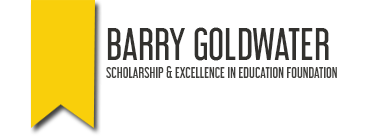“I like to look at a messy situation, put some structure on it, and figure out where the patterns and opportunities lie. In this way, I can best determine where I can have a positive impact.”
I always liked science and math, and when I went to college, I thought I would be a chemistry major. I could imagine what chemists did and really enjoyed my high school chemistry classes. I also really enjoyed mathematics, but math seemed like a game to me, and I couldn’t imagine what a mathematician did, so chemistry seemed like a better bet. First year of chemistry was great, and organic chemistry was great, too – that is, until the labs came. I was a strong student in the classroom and enjoyed putting together all of those molecules with plastic pieces. However, I was slow and clumsy with the real experiments. Everyone else followed their lab manual and produced a pristine white powder, while I made brown sludge and broke glassware. It became clear pretty quickly that I should major in something that had no lab, and so I switched to studying mathematics and never looked back.
Being nominated as a Goldwater Scholar was impactful for me, because it was one of the first times that I was individually recognized by my department and my university for my mathematical ability. It really built my self-confidence. The semester that the Goldwater application was due, I was studying in London. This was in 1992, before the internet, everything was done on a paper application, and I was afraid that I would be ineligible because of the distance. Duke said that it could be handled, and this taught me that administrative hurdles can often be overcome.
In addition, the Goldwater Scholarship introduced me to the office at my university that handled fellowships. I was able to use the contacts that I made via the Goldwater application process to understand further opportunities, leading to a summer research program at Rockefeller University.
Since receiving the Goldwater Scholarship, I earned a Ph.D. in mathematics and held postdoctoral positions at the University of Quebec in Montreal and at Rice University. My research was published in academic journals and I taught students a full range of mathematics courses. After my postdoctoral appointments, I realized I wanted to work on broader problems and applied for a Science & Technology Policy Fellowship from the American Association for the Advancement of Science to come to Washington, DC and learn about how science and scientists play a role in the federal government. I really enjoyed my experience supporting the scientific enterprise at a national level. I have held several positions at organizations in the Washington, DC area and now serve as a Science and Technology Advisor in the Directorate for Engineering at the National Science Foundation (NSF). In this role, I am responsible for leading partnerships for our directorate, helping NSF to work with other government agencies, industrial collaborators, or non-profit organizations to best push forward engineering research and education. I also advise on other science and policy topics.
Although I am not currently doing research in mathematics, my mindset as a mathematician informs how I approach my work. I like to look at a messy situation, put some structure on it, and figure out where the patterns and opportunities lie. In this way, I can best determine where I can have a positive impact. My advice to early-career scientists to be open to new opportunities and not be afraid to think broadly about what you want your career to look like. There are more options than you can imagine.
Disclaimer: This post represents Jennifer Pearl’s personal views and does not reflect the views of the National Science Foundation.

